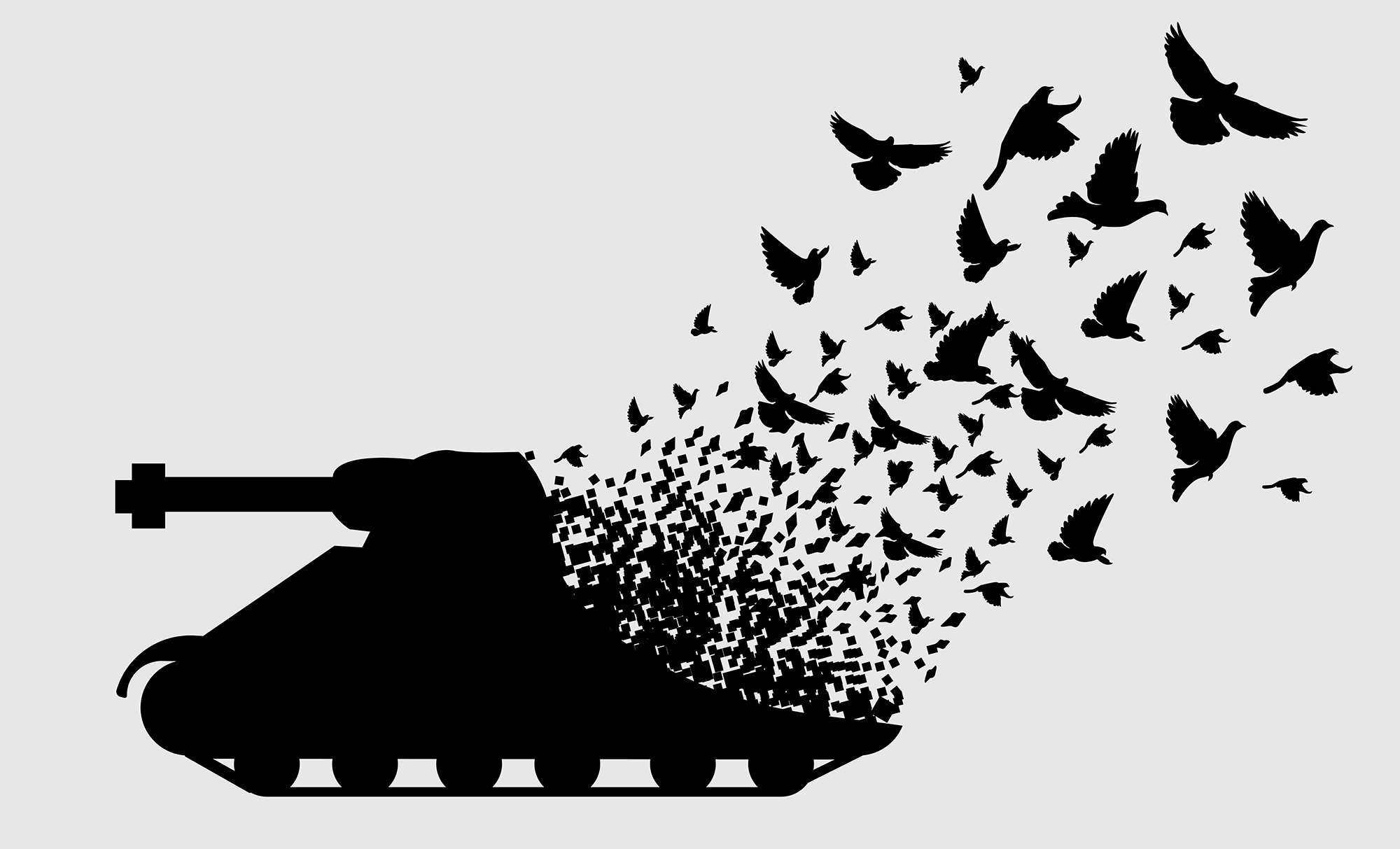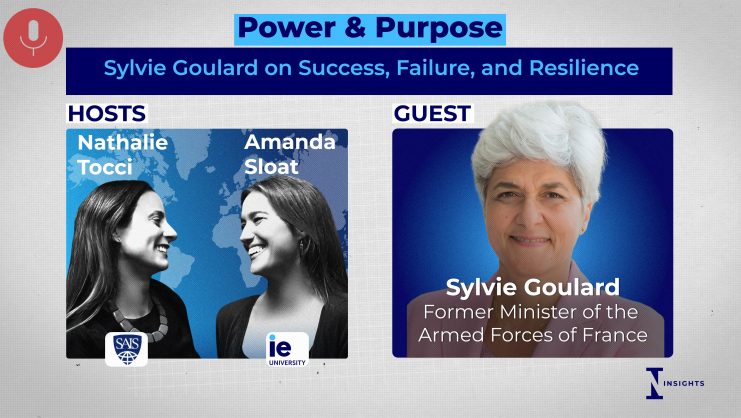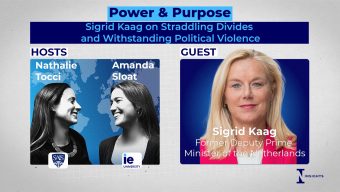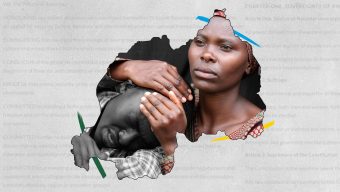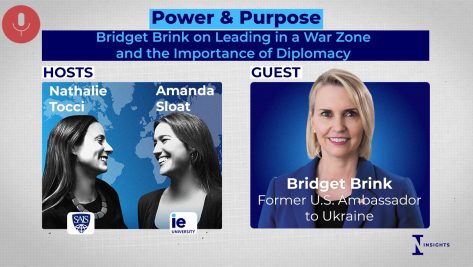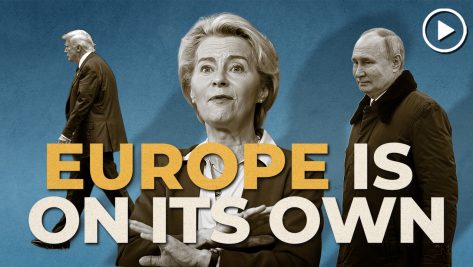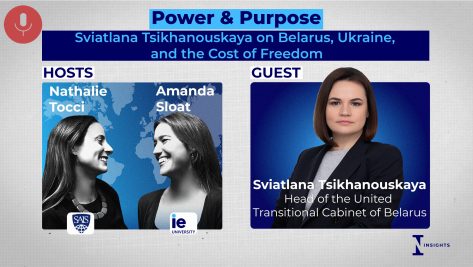It is hard to believe what we are witnessing these days in Ukraine. A war straight out of the first half of the twentieth century – or even the nineteenth century – is shaking the ground of a Europe convinced that it had successfully moved into the twenty-first century: people defending their homes against young soldiers who barely know why they have been sent to conquer a supposed enemy territory; burning buildings; bridges blown up; blood spilled on boulevards where families strolled on a Sunday and where food delivery motorbikes scurried night after night.
Nothing will ever be the same after Russia’s terrible invasion of Ukraine. Something has broken inside us. We seemed immune to the horror of wars, so often featured in our cold, aseptic TV screens. Yet now, war feels closer, more direct, more real. A little more than a week ago, people in Ukraine were going about their normal lives, only to wake up one morning to the roar of bombs destroying their houses. Kyiv looks similar to Madrid, from where I write this. Many of us have friends who live or have lived in Ukraine, who are now watching on the news how the plumes of smoke rise, and the trenches are erected in their former neighborhoods.
I am confronted with principles that until now have guided my understanding of the world and international relations.
I am struggling to explain to my daughters why this war, which is no worse than any other war in terms of cruelty and suffering, is more important. Why it is not only the lives of children like them and of mothers and fathers like theirs that are at stake, but also the very survival of the world we have known until now. A world most of us want to change, but not to destroy. What is in peril is our very own future as open, democratic societies and as communities that are free to choose their own destiny.
A military force has unceremoniously invaded a sovereign state which it called not only a neighbor, but a brother. I am confronted with principles that until now have guided my understanding of the world and international relations: force vs. peace, national sovereignty vs. cosmopolitanism. I have no answers, but I do have certain nagging doubts that are making me rethink these values and their relevance in the light of this current critical, transcendental historical time. We need force today to secure the peace of tomorrow – a reassertion of the principle of national sovereignty now as the foundation for transcending it in the future.
In the dichotomy between war and peace, it is striking to the pacifist that I have always been to realize that this may well be the time for force, or at least to wave the threat of its use. Yet, our governments have only advocated force when tragedy has already taken place. Beyond the intensification of the initially lukewarm sanctions, the announcement to send weapons to the Ukrainian people is still not a solution to prevent the massacre that is taking place.
I think it is time for our governments to give Russia an ultimatum: either its troops leave Ukraine, or they will be targeted for selective bombings in the occupied territory. Failure to do this is to abandon Ukraine to its fate. One does not need to be a member of NATO and bound by Article 5 to advocate a return to international law and order. It is possible. In fact, it happened in 1999, during the Kosovo War. Mind you, at that time NATO dropped bombs over Belgrade, which would be the equivalent of attacking Moscow. No one is talking about that, by any means (even if that would be the parallel of what our governments did 23 years ago). What I am advocating is giving a reasonable but strict deadline for withdrawal, under the threat that the occupying forces will be militarily targeted thereafter. Short of that, we are failing Ukraine.
Of course, the difference is that Putin is not Milosevic, and Russia is not Serbia. The tyrant currently occupying the Kremlin has the nuclear threat as the ace up his sleeve. But Putin understands no other language. In fact, he has been playing games with the West for years with the trompe l’oeil of purported diplomacy when he was actually putting together a truly totalitarian, expansionist plan. What was the point of advocating a supposed Finlandization of Ukraine, when the Kremlin is now threatening Helsinki?
Putin’s own maneuver to activate his nuclear arsenal in special combat mode, supported by Lavrov’s recent threats, is his latest bluff in the face of the surprising unity the West is showing in its response to the aggression, something he had not foreseen. Putin was expecting a Kabul, and this time he has encountered a 9/11 response that has caught him on the wrong side of the chessboard. No other country will follow him down this road, including a China that is taking close note of this answer. Who knows, the paradox of this terrible situation may be that even Beijing ends up closing ranks with the rest of the world, in its own special terms: an opportunity to return to a revisited peaceful raise, knowing that the clock of history is ticking in its favor and no one wants to be the hegemon in a destroyed world.
No one can say that there has not been an opportunity for dialogue during the last few years, months, and days. Perhaps the threat of force from day one would have served as a deterrent that could have prevented the bloodshed —not only Ukrainian, but also Russian— that we are seeing and that we will continue to witness in the days to come. The violent only respect the language of force, or at least the threat that their aggression will not go unpunished. It is time to be ahead of the game and take Putin’s lead.
The second major paradox confronting internationalists like myself who have been pushing for better global governance is that now is the time to reassert the principle of sovereignty, given that it has been violated.
I firmly believe that the future of humanity lies in transcending old concepts of sovereignty, limited to the glorification of nation-states. The world will be a better place if someday all human beings feel part of the same political community, banishing the notion of passports, of borders, of first-, second-, and third-class citizens. We need to transcend the real and imaginary barriers that prevent us from converging as a human community, embedded in our cultures and mindsets.
However, this future can only be built through integration and the gradual supranationalization of sovereignty to manage global challenges. We need to build on the countries we have today, and democratically and voluntarily transcend the Westphalian order, not wipe it off the face of the earth. This is what the European project has taught us. It is without a doubt a guiding light that marks the way towards which humanity should guide its steps: adding, instead of subtracting, and uniting, instead of dividing.
That is why today my internationalism and my resolve to overcome the current international order, which is incapable of providing a solution to the problems of our era, drives me to firmly defend the sovereignty of a country that is under attack. Today, above being a citizen of the world, a European, a Spaniard, an Andalusian, or a Sevillian (currently adopted as a “Madrileño”), I feel Ukrainian.
We are living in uncertain, difficult, and unprecedented times. They will lead us to redefine priorities, revise ideas, and rethink strategies. Unfortunately, peace will require us to reassert force, or at least to resolutely threaten that it will be used to produce a deterrent effect. And the profound overhaul of global governance that our planet needs requires the reassertion of sovereign rights. We are all Ukraine.
© IE Insights.



